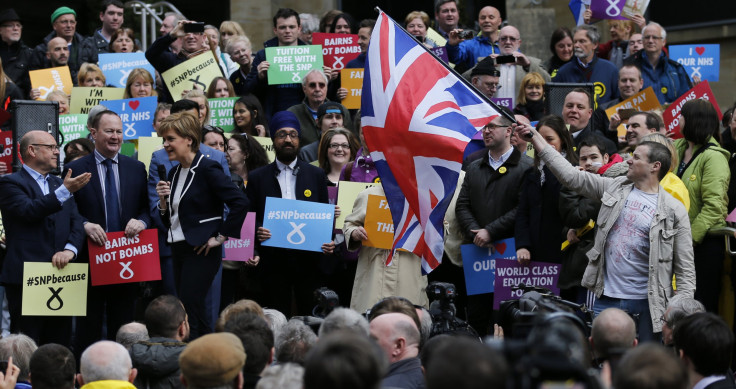UK Elections: Scotland May Hold Another Independence Referendum If Nationalists Win

Large parts of the United Kingdom go to polls Thursday, including Scotland, Wales and Northern Ireland, as well as some local council and mayoral elections in some cities in England, such as London. Other than the race for London’s mayor, the election to the Scottish Parliament, Holyrood, is being watched closely and is largely expected to be won by the ruling Scottish National Party (SNP).
About 4 million voters in Scotland will elect 129 members to Holyrood for a five-year term, and this will be the first time when 16- and 17-year-olds will be allowed to vote in the parliamentary election. Holyrood is responsible for limited governance of Scotland under powers devolved from the U.K.’s Parliament in London.
In the last election in 2011, SNP had won, for the first time, a majority of 69 seats, and is widely expected to perform even better this time, leaving both the once-dominant Labour and Liberal Democrats struggling for a sizeable presence in Scotland.
SNP supports Scottish independence from the U.K. and if Scotland’s First Minister Nicola Sturgeon is re-elected, she is likely to renew calls for an independence referendum that have been given a boost by the possibility of the U.K. leaving the European Union.
Scotland had held a referendum on independence in September 2014, in which voters chose to stay within the U.K., with 55 percent of those voted supporting the status quo and the other 45 percent wanting out.
Voting on Thursday is open from 7 a.m. to 10 p.m., local time, (2 a.m. to 5 p.m. EDT), and results are expected to start coming in early Friday.
© Copyright IBTimes 2024. All rights reserved.











